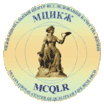|
T. I. Ionova1, A. Eu. Bannikova2, A. V. Bykova3, A. G. Volkova4, S. V. Gritsaev5, A. A. Zherniakova5, I. M. Zapreeva5, A. V. Zinkovskaya6, I. I. Kostroma5, A. D. Kulagin4, K. V. Lepik4, V. Ya. Melnichenko2, N. B. Mikhailova4, I. S. Moiseev4, N. Eu. Mochkin2, I. S. Nemchenko3, T. P. Nikitina1, A. N. Petrova3, N. M. Porfirieva6, O. M. Pospelova3, A. A. Samoylova2, A. G. Smirnova4, E. G. Smirnova2, A. G. Turkina3, A. M. Chekalov4, S. Salek7, E. Oliva8, B. V. Afanasyev4
Development and psychometric evaluation of the specific questionnaire for quality of life assessment in patients with hematological malignancies in clinical practice - HM-PRO
1SAINT-PETERSBURG STATE UNIVERSITY HOSPITAL, SAINT-PETERSBURG
2N. I. PIROGOV NATIONAL MEDICAL SURGICAL CENTER, MOSCOW
3NATIONAL RESEARCH CENTER FOR HEMATOLOGY, MOSCOW
4RM GORBACHEVA RESEARCH INSTITUTE OF PEDIATRIC ONCOLOGY, HEMATOLOGY AND TRANSPLANTATION, PAVLOV UNIVERSITY, SAINT-PETERSBURG
5RUSSIAN RESEARCH INSTITUTE OF HEMATOLOGY AND TRANSFUSIOLOGY, SAINT-PETERSBURG
6MULTINATIONAL CENTER FOR QUALITY OF LIFE RESEARCH, SAINT-PETERSBURG
7SCHOOL OF LIFE AND MEDICAL SCIENCES, UNIVERSITY OF HERTFORDSHIRE, HATFIELD, UK
8HEMATOLOGY UNIT, GRANDE OSPEDALE METROPOLITANO, REGGIO CALABRIA, ITALY
This study is devoted to the results of development and approbation of Russian version of the new instrument for quality of life assessment in patients with haematological malignancy (HM) in clinical practice - Hematological Malignancy specific Patient-Reported Outcome tool (HM-PRO). The aim of the study was to determine the value of HM-PRO in daily clinical practice in Russia from patients and from physicians’ perspective as well, as to evaluate practicability, usefulness, reliability, validity and sensitivity of the tool. Descriptive statistics and parametric or non-parametric tests were employed with p value <0,05. 199 patients with different HMs from 4 tertiary hospitals in SPb and Moscow were recruited into a cross-sectional study on an in-patient or out-patient basis: mean age - 50,5(±14,8) yrs, 49 % of patients were male. In addition, 29 physicians took part in the approbation of the tool: mean age was 36(±11) yrs; 35 % of physicians were male, mean years of practice - 11(±10) yrs. During testing of Russian version of the HM-PRO its’ acceptable face validity was shown - patients considered that the tool is easy to understand, convenient for use and informative to capture the concerns of patients with HMs. Also physicians reported about the feasibility of implementing the HM-PRO in clinical practice and its usefulness during treatment decision-making, especially for patients those who progressed. The acceptable reliability, construct validity and sensitivity to changes between patients in different clinical groups according to treatment response, ECOG, presence of comorbidity and adverse events were demonstrated. Additionally, acceptable correlations between HM-PRO scale values and SF-36 scale values were shown. Thus, Russian version of HM-PRO revealed to be as reliable, valid and sensitive tool which may be useful for quality of life assessment in patients with HMs at different terms of treatment as well as at follow-up in a real settings and in research studies as well.
|





